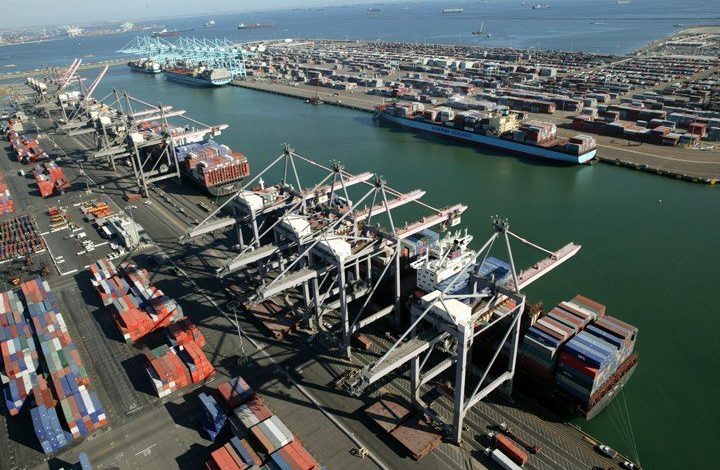Shippers up in arms as boxes are rolled over and GRIs rain in on the transpacific

With peak season on the transpacific container trade enjoying volumes not seen for many years, shippers are getting anxious about liners enforcing massive general rate increases (GRIs), especially as evidence emerges that some boxes are being rolled over at ports in Asia.
American ports are on track to handle 1.75m teu this month, setting a new record, according to Global Port Tracker, a statistic that adds further evidence to the booming transpacific scene.
However, a flood of GRIs, ranging from $600 to $1,000 per feu, announced by more than five lines with more to follow has angered many customers, especially as service levels have dipped.
Chris Welsh, the secretary-general of the Global Shippers’ Forum (GSF), told Splash: “GSF members in Asia are, yet again, experiencing space shortages and blanked sailings accompanied with significant rate rises by carriers in the transpacific.”
Welsh said what was happening on the transpacific was either down to poor planning, or a “cynical manoeuvre” to force up rates.
“Many shippers are facing excessive rate hikes for a reduction in service quality,” Welsh argued.
“There has been a strong start to the peak season and virtually all loops from Asia to both coasts have been full recently with even anecdotal reports of a few rollovers in Asia,” Neil Dekker, Drewry’s director of container research, reported.
Dekker felt the full-up nature of ships heading from Asia to North America would ensure the planned rate hikes set for September and October would go through.
“There is no major reason why the next GRIs should not be fundamentally successful and to my knowledge there are no lines out there engaging in serious price-cutting,” Dekker said.
Nevertheless, the GSF is still calling for a more constructive dialogue with carriers, rewarding lines for reliability.
“The GSF has been calling for a serious discussion between carriers and shippers on how the maritime and logistics chain can be optimised, and how shippers and carriers’ interests can be better aligned for some time,” GSF’s Welsh said, adding: “If carriers wish to secure financial sustainability, then we urgently need alignment of those interests, and a remuneration system based on performance.”
Welsh’s comments on financial sustaibability are all the more pertinent given that today marks the first anniversary since South Korean carrier Hanjin Shipping sought court protection.
